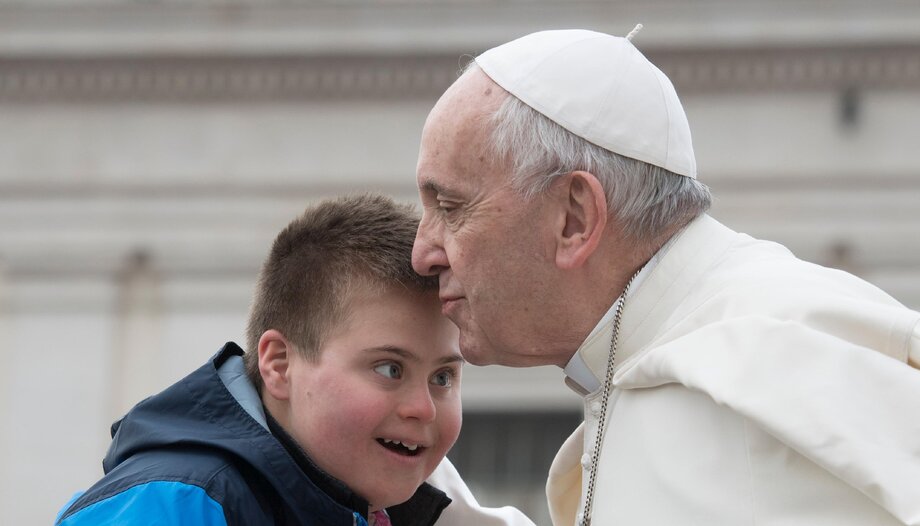On April 11, Pope Francis launched a strong appeal to promote a "culture of integral inclusion" of persons with disabilities, overcoming the utilitarian and discriminatory mentality of the "culture of rejection," receiving in audience in the Clementine Hall the participants in the plenary session of the Pontifical Academy of Social Sciences.
"When this elementary principle is not safeguarded, there is no future either for fraternity or for the survival of humanity," the Pontiff admonished, referring to the principle of the inviolable dignity of every human being, regardless of his or her condition.
While acknowledging the progress made in many countries, Francis denounced that in too many parts of the world people with disabilities and their families continue to be "isolated and pushed to the margins of social life". A situation that occurs not only in the poorest countries, where disability "often condemns to misery," but also in contexts of greater economic well-being.
Cross-cutting mentality
The "culture of rejection", for the Pope, is transversal and has no borders. It leads to evaluating life only on the basis of "utilitarian and functional criteria", forgetting the intrinsic dignity of every person with disabilities, "fully human subjects, holders of rights and duties".
A particularly insidious aspect of this mentality is the tendency to make people with disabilities feel "a burden to themselves and their loved ones." "The spread of this mentality transforms the culture of discarding into a culture of death," Francis added, recalling that "people are no longer felt as a primary value to be respected and protected."
To counteract this phenomenon, the Pontiff urged to "promote a culture of inclusion, creating and strengthening the bonds of belonging to society". A choral commitment is needed from governments, civil society and persons with disabilities themselves as "protagonists of change."
Subsidiarity and participation
"Subsidiarity and participation are the two pillars of effective inclusion," he continued, underlining the importance of movements that promote active social participation. A path that requires "decisiveness and the ability to find effective ways" to concretize a kind of new humanism, following what has already been reiterated in "Fratelli Tutti": "Any commitment in this direction becomes a high exercise of charity".
Dignity for all
Earlier this month another document appeared that addresses these issues, the Declaration "Dignitas infinita" of the Dicastery for the Doctrine of the Faith, which stresses that every human being has the same, intrinsic dignity, whether or not he or she can adequately express it.
The theme of disability is specifically addressed in numbers 53 and 54, which highlight the "culture of rejection" of people with different abilities, a current challenge that requires greater attention and solicitude, especially considering that in some cultures these people live in situations of great marginalization. On the other hand, assistance to the most disadvantaged is precisely "a criterion for verifying real attention to the dignity of each person".
Here too there is an inescapable reference to "Fratelli Tutti": "To take charge of fragility means strength and tenderness, struggle and fruitfulness in the midst of a functionalist and privatist model". It means, in short, "taking charge of the present in its most marginal and distressing situation and being able to anoint it with dignity".








